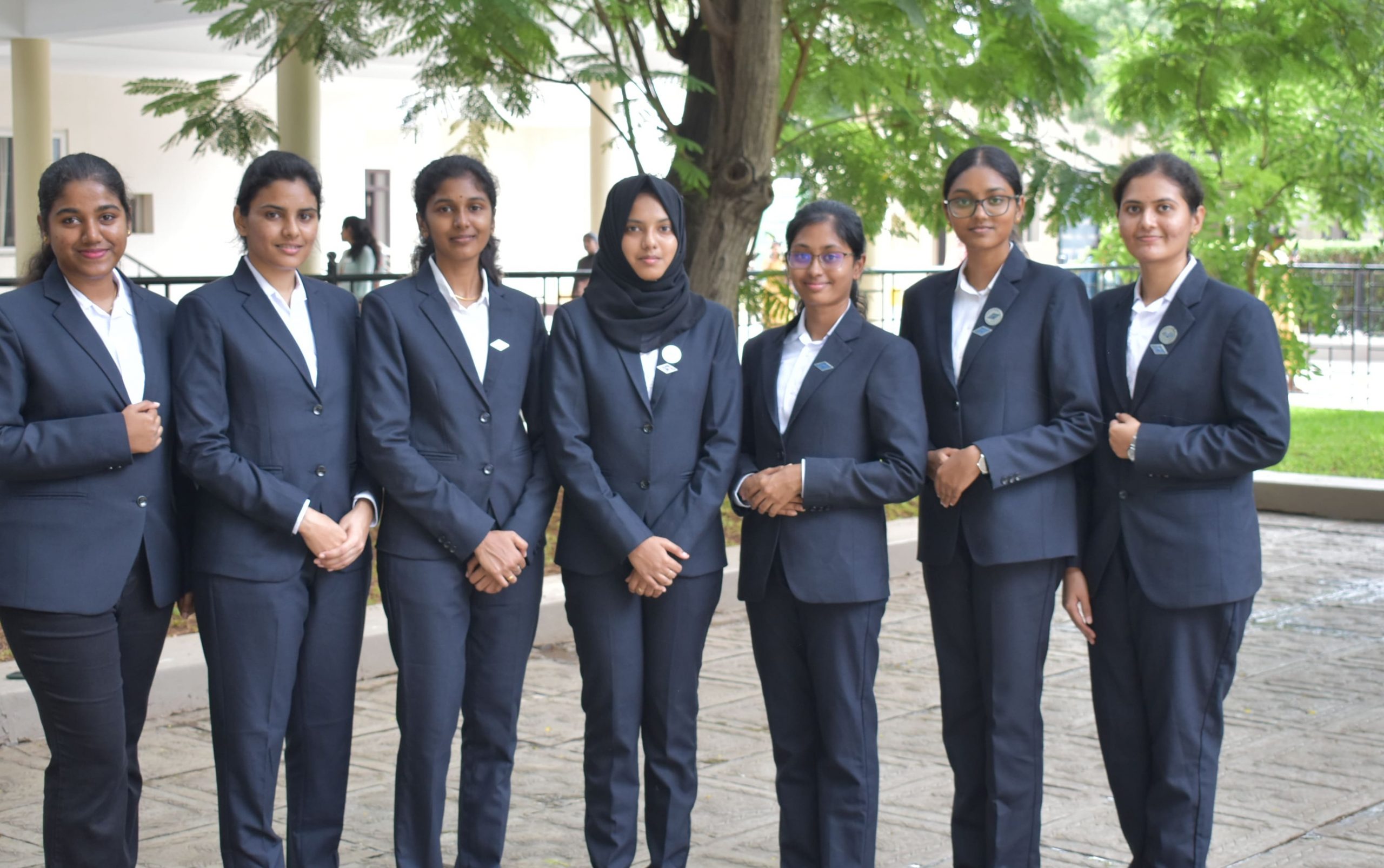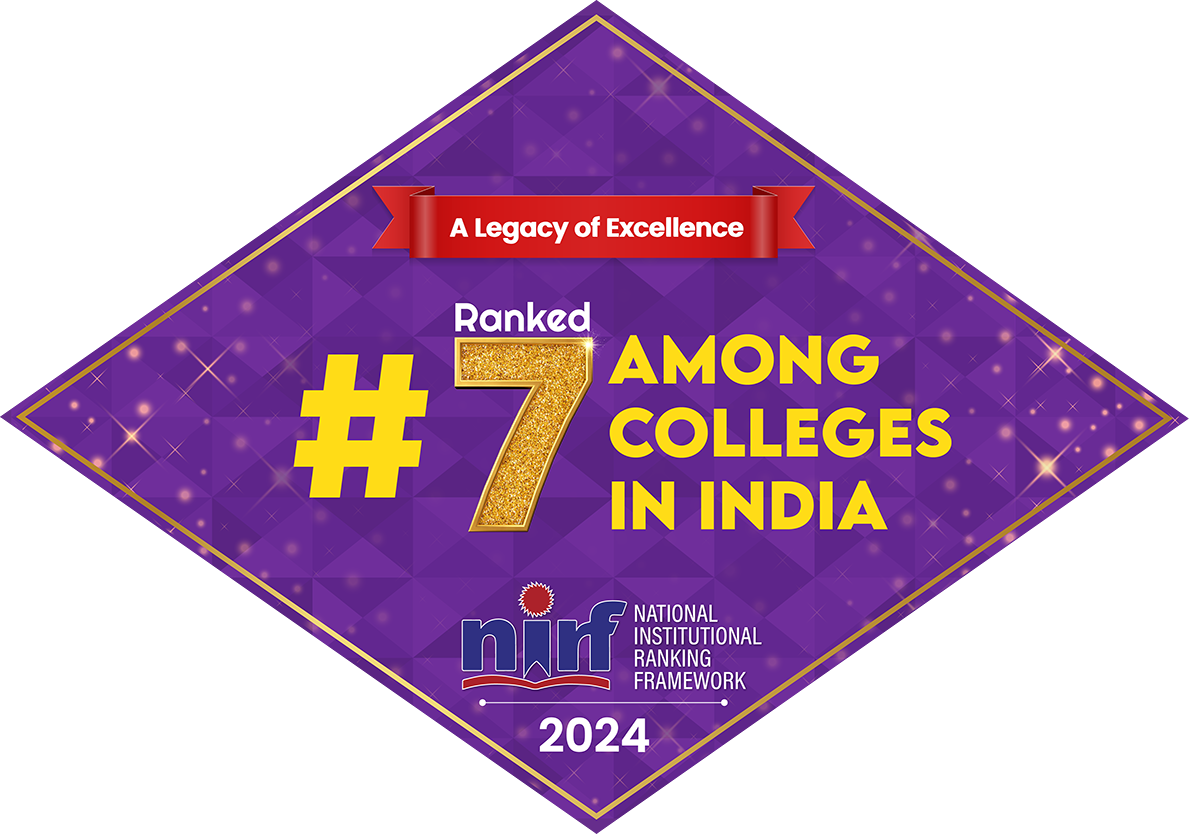PSGR Krishnammal College for Women has been sanctioned with a grant of Rs.1.2 crores to establish DBT-BUILDER – PSGR Krishnammal College for Women - Interdisciplinary Life Science Programme for Advance Research and Education under the “Boost to University Interdisciplinary Life science Departments for Education and Research (BUILDER – Level-1)” Programme for advanced research and education by the Department of Biotechnology (DBT) Ministry of Science and Technology, Government of India. BUILDER programme aims to promote interaction of existing life science departments in interdisciplinary research through creation of new research agenda.
Objectives of the programme are to
- Upgrade, modernise life science laboratories – teaching learning,research and skill enhancement training
- Augment inter-disciplinary bioscience core research through inter-departmental and inter-institutional collaboration.
- Extend innovative research in Biotechnology (from discovery to market)through re- grouping research activities and training programmes
- Increase the number of postgraduate students at M.Sc., Ph.D., and Postdoctoral levels with quality education, skills and research temperament is envisaged.
- Bridge the gap between Academia and Industry resulting in public-private partnership to establish interdisciplinary and trans-disciplinary advanced Education and research
- Create and promote young Bio-entrepreneurs with meaningful contributions towards bioeconomy
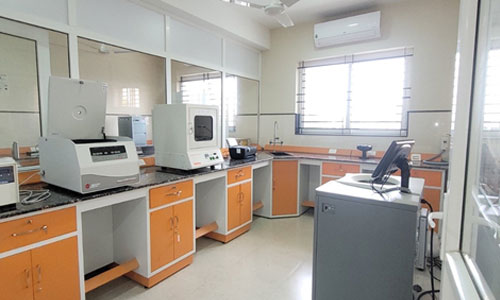
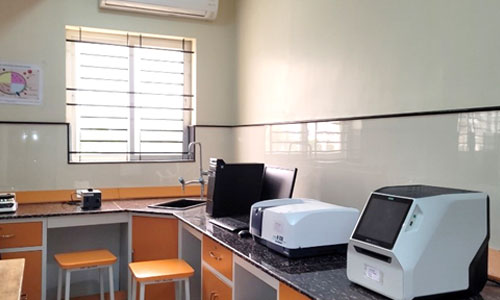
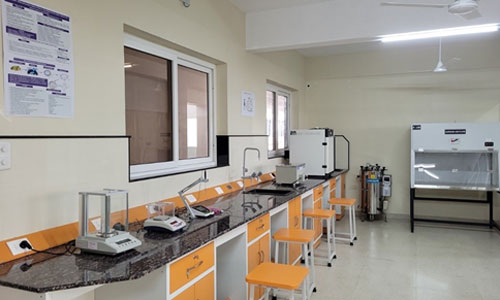
Equipment
- Floor Model Ultra Centrifuge – Beckman Coulter XPN 100
- Refrigerated Centrifuge - Beckman Coulter Allegra X30R
- Nanodrop-Microspectrophotometer
- E-porator – Eppendorf
- -20C Deep freezer – Elanpro
- Orbital shaker – Orbitek
- Autoclave
- Laminar air flow chamber
- Gel documentation – Bio-rad
- UV Spectrophotometer – Jasco V – 730
- Magnetic stirrer
- Heating block
- Hot air oven
- Initiation of research groups and collaboration with life science related R & D institutes and industries
- Research in Plant Exosome:Isolation of Plant-derived extracellular vesicles (exosomes), analysis of size, imaging the exosomes, mi-RNA identification and mRNA sequence, drug loading and testing the efficacy in cells lines
- Research in Anticancer compounds, Antimicrobial peptides of plant origin, Biosensors, PGPRs, Antiviral drugs and Metabolicfinger printing of Medicinal plants
- Training for faculty, students, technicians and scholars of PSGRKCW and other Institutions
- Presentation and publication of research findings
- Product development
- Patenting
- Plant Exosomes may be highly proficient in the development of next-generation biotherapeutic and drug delivery nanoplatforms
- These plant-edible Exosomes are believed to be excellent candidates for the treatment of inflammatory diseases, cancers, and other diseases.
- It is anticipated that our present investigations will significantly contribute to the development of natural nano-medicines.
- Cross kingdom exosomal miRNA transfer
- Transfer of miRNA between plant and
- human endogenous gene regulation
- plant pathogenic fungi
- plant pathogenic viruses
- rhizosphere organisms
- gut microflora
- human pathogens
- Functional comparative study of miRNA cargo in exosomes from Citrullus lanatus (Watermelon) and Citrus sinensis (Sweet orange)
- In-silico analysis of proteome of nanovesicles from Citrullus lanatus (watermelon) and Citrus sinensis (Sweet Orange)
- Bioinformatic analysis for Comparison of miRNA cargo of Ginger exosome with Human miRNAome.
- Identification of hub genes associated with exosomes in breast cancer
- Comparison of bovine milk exosomal miRNA with human miRNAome to identify cross-kingdom targets
- Functional comparison of protein cargo from extracellular vesicles, microsomes and exosomes from human milk
- In silico work on human and animal exosomes have also been carried out in collaboration with Zoology and Bio-technology departments.
- “Identification of hub genes associated with exosomes in breast cancer”
- “Comparative study on proteome of milk exosomes of Bos taurus and Homo sapiens”
- Identification of hub genes associated with ovarian and liver malignancies
Zoology
Biotechnology
- ICAR-Indian Agricultural Research Institute, Regional Station, Wellington(Nilgiris)
- Apollo Hospitals Educational and Research Foundation (AHERF ), Hyderabad
- Golden Jubilee Biotechnology Park for Women, Chennai
- Indian Institute of Science, Bangalore
- PSG-Science & Technology Entrepreneurial Park (PSG-STEP),Coimbatore
- Institute of Forest Genetics and Tree Breeding, Coimbatore
- Sugarcane Breeding Institute, Coimbatore
- Bharathiar university, Coimbatore
- Nagaland University Central, Nagaland
- Mizoram University, Aizawl, Mizoram
- DBT BUILDER support will play a major role to create and promote young “Empowered Women”, fortify them with knowledge, skills and competencies to contribute through scientific research
- Hands on experience/ Workshops, Faculty Development Programmes in the Interdisciplinary areas of Life Science with Physical, Chemical, Mathematical and Computer Science will facilitate PG teaching and learning
- Students will be equipped with technical knowledge and skills relevant to pharmaceutical, health-care, agro, food and other biotech related industries, corporates, environmental sectors, research institutions and other regulatory agencies
- Support provided by DBT Builder on Interdisciplinary research will enhance the number of beneficiaries and also improves a strong network with other cluster colleges.
- PSGRKCW, with the support of DBT, would function as a Nodal Center to impart teaching and learning to academic and research institutions, industries (public private partnership) and society to foster Discovery, Innovation and Translation of Life Science, consistent with the Vision and Mission of DBT.
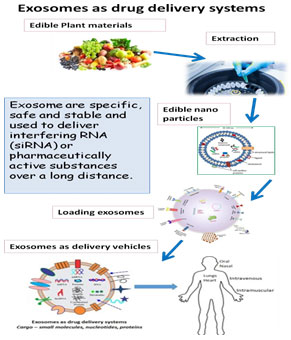
- Subha, D., Harshnii, K., Madhikiruba, K. G., Nandhini, M., & Tamilselvi, K. S. (2023). Plant derived exosomelike Nanovesicles: an updated overview. Plant Nano Biology, 3, 100022. ISSN 2773- 1111, https://doi.org/10.1016/j.plana.2022.100022.
- K. Harshnii, K.S. Tamilselvi and D. Subha. Micro RNAs from Citrus sinensis have potential targets in humans and human pathogenic virus - Adv. Appl. Res., Vol.14, No.2, (2022) pp 36 – 47. DOI : 10.5958/2349-2104.2022.00007.9
- Subha D, AnuKiruthika R, Sreeraj H, Tamilselvi KS. Plant exosomes: nano conveyors of pathogen resistance. Discov Nano. 2023 Nov 30;18 (1):146. doi: 10.1186/s11671-023-03931-4. PMID: 38032422; PMCID: PMC10689327.
- Dr.K.S.Tamil Selvi (Project coordinator1 & Principal Investigator)
- Dr.P.B.Harathi (Project coordinator 2 & Principal Investigator)
- Dr. K. Sunitha, Assistant Professor of Botany (Co- Principal Investigator)
- Dr. Sarah Jaison, Assistant Professor of Botany (Co- Principal Investigator)
- Dr. Charumathi Pushparaj, Assistant Professor of Zoology (Co-Principal Investigator)
- Dr. D. Subha, Assistant Professor of Biotechnology
- Ms. Anu Kiruthika, Project Assistant
- Ms. Harsha Sreeraj, Project Assistant







